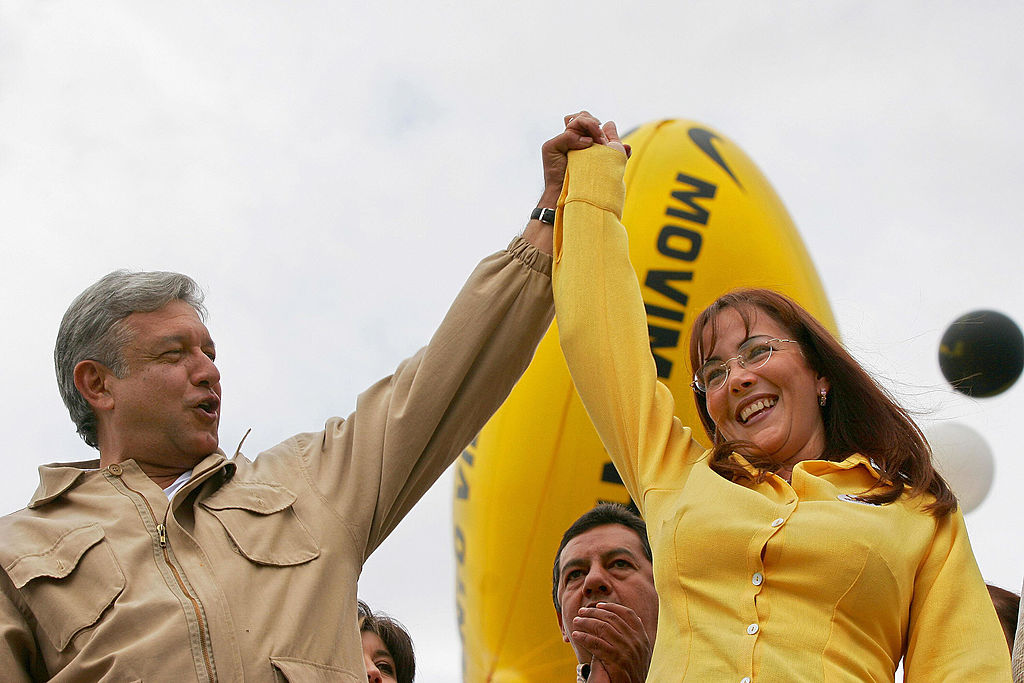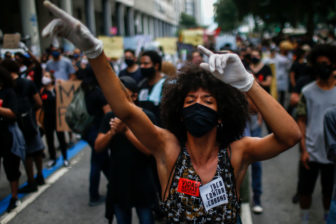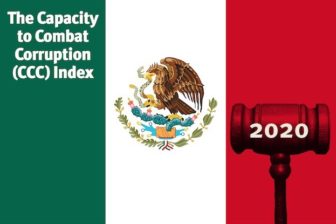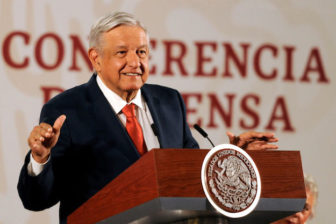MEXICO CITY – It wasn’t long ago that Yeidckol Polevnsky and Alfonso Ramírez Cuéllar stood reluctantly arm-in-arm. Today the former and current presidents, respectively, of Andrés Manuel López Obrador’s Morena party seem more likely to come to blows.
On June 18, Mexico’s attorney general’s office said it had received a corruption complaint from Cuéllar and Morena leadership in relation to Polevnsky’s alleged misuse of 395 million pesos ($17.5 million) in party funds. She denies any wrongdoing.
Days earlier, given a chance to weigh in on the escalating spat within the party he founded in 2014, López Obrador said its financial practices “weren’t his concern,” but that any potential corruption should be investigated. He has previously said, dubiously, that when it comes to Morena he is “no longer the boss.”
Factional disagreements within Mexico’s left debilitated AMLO’s former party, the PRD. A senator who defected from Morena to the conservative PAN recently called her former colleagues “cannibals.” But despite current frictions – of which the Polevnsky dispute is only the most prominent example – Morena holds the high card ahead of midterm elections next year, in which the entire lower house and 15 governorships will be up for grabs. (Only one of the state houses is currently in Morena’s hands.)
“The coalition that took AMLO to the presidency was extremely diverse, and recently we’ve seen the consequences of that,” Palmira Tapia, a political consultant, told AQ. “But the opposition parties … haven’t been able to take ownership of feelings of dissatisfaction.”
Indeed, though the percentage of Mexicans who said they would vote for Morena next year in an El Financiero poll fell from 36% in October to 19% in May, the party remains far more popular than its rivals. Only 10% opted for the PAN and 8% for the PRI in the same poll. Remaining parties trailed even further behind.
That could change as the full economic and health consequences of COVID-19 come into focus. At least 19,000 Mexicans have been killed by the virus so far, amid muddy government messaging and what many view as López Obrador’s detached response to the outbreak. Morena mayors also fared poorly in a recent Massive Caller poll.
Crises in Mexico tend to hurt the party in power: In the first mid-term election following the 1994 Tequila crisis, the ruling PRI lost over 60 seats and its outright majority in the lower house. In the first vote after the 2008 financial crisis (also just months after the H1N1 outbreak) the PAN lost a similar number. Both parties went on to lose the presidency three years later.
But despite some examples of governors resisting López Obrador’s coronavirus strategy, Mexico’s opposition has yet to find its footing since his election in 2018 “totally upended” the political landscape, said Alberto Espejel Espinoza, a political science professor at UNAM. From 1997-2014, the PAN, PRI and PRD never captured less than 74% of the vote in the lower house between them. In 2018 that number fell to 27%, as even typically establishment voters were lured by the power of López Obrador’s personality.
“Voters now tend to switch sides more freely, they don’t necessarily identify so much with a political force,” said Espejel. “They are a little more rational, a little more calculating,”
The lack of prominent party leadership and the imperatives of COVID-19, which may limit parties’ opportunities to attract new voters, Espejel said, could make cross-ideological alliances more likely. On June 18, Morena announced it would enter next year’s election allied with the Workers’ Party and the ideologically amorphous Green Party. Earlier in the week, the president of the conservative PAN proposed an alliance with the left-of-center PRD and Citizens’ Movement.
The proliferation of new parties since the last election, including one founded by former presidential candidate Margarita Zavala and her husband and former president, Felipe Calderón, could further help Morena’s cause. Of the more than 100 new parties that applied for registration last year – a record – as many as six could find their way to the election, according to Integralia, a consultancy.
“The more parties the better for Morena. Some of the new parties will join them … while those that don’t will take votes away from the opposition,” Integralia’s Ximena Mata told AQ.








